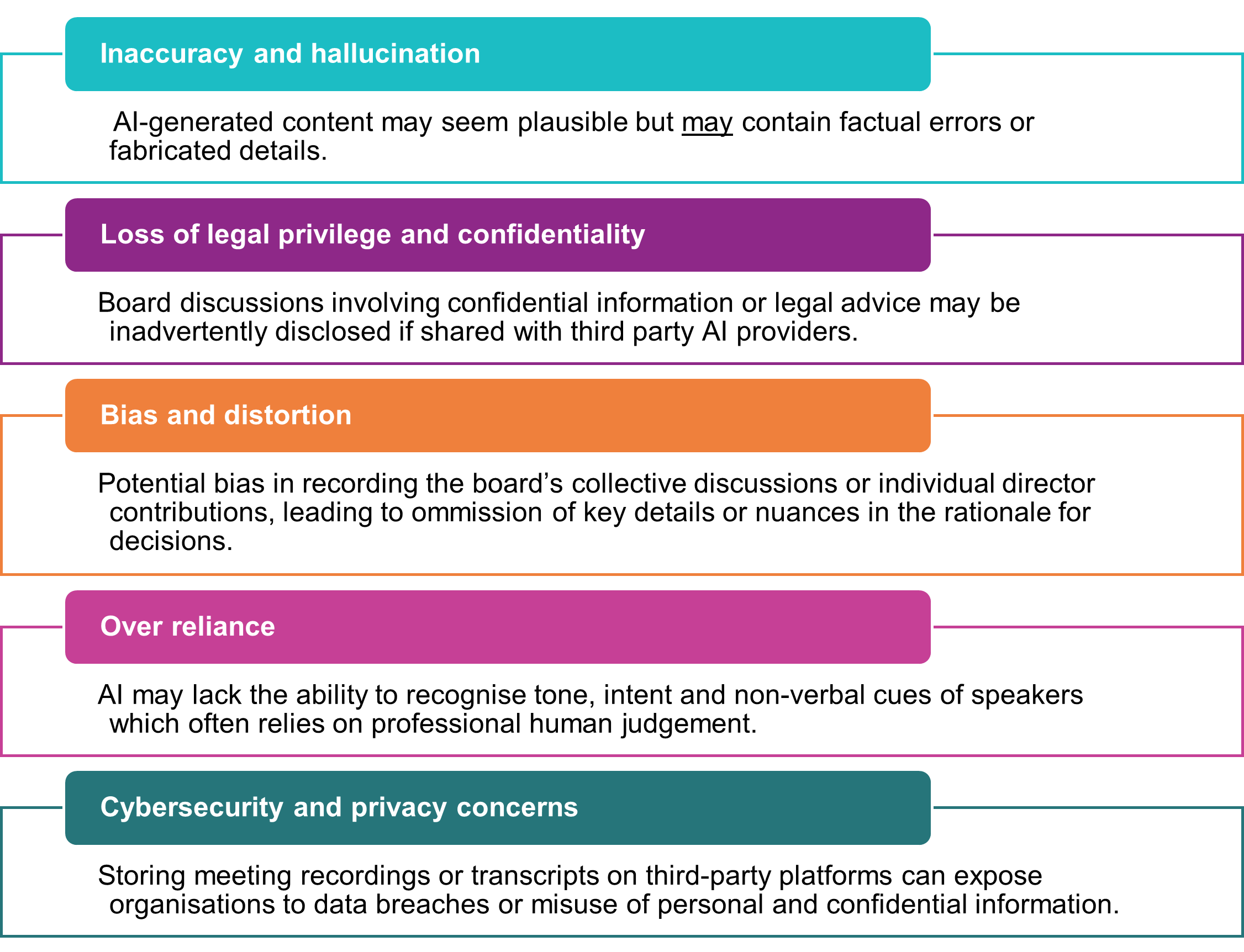AI and Minute-Taking: Guidance from the AICD and Governance Institute
03 Nov 2025
In May 2025, the Australian Institute of Company Directors (AICD) and the Governance Institute of Australia issued a Joint Statement on “Effective Board Minutes and the Use of AI”.
This Joint Statement is informed by a 2019 legal opinion and an updated 2025 opinion from barristers Dominique Hogan-Doran SC and Douglas Gration. It sets out guiding principles for directors and company secretaries on preparing effective board minutes and practical considerations for the use of artificial intelligence (AI) in drafting minutes.
A link to the Joint Statement can be found here.
Minutes: More than a compliance exercise
The Joint Statement reiterates that board minutes serve a critical governance and legal function. It notes that minutes are not purely a compliance exercise, and that a ‘tick-box’ approach should be avoided. Rather, they provide an official and enduring record of the decisions made by a board and the rationale for those decisions.
According to the Joint Statement, good board minutes should:

Other practical tips from the Joint Statement on preparing effective board minutes include:

Board Minutes in the Age of AI
The Joint Statement notes that in recent years, the availability and use of AI and generative AI tools to perform routine administrative tasks has grown exponentially.
Governance professionals have begun to explore AI tools to assist in drafting board minutes. AI tools can now transcribe, summarise and even draft minutes using a combination of recorded audio, meeting transcripts and board papers.
Examples of AI tools that may generate draft minutes include ChatGPT, Gemini, tools within board management portals or in-house AI tools developed by the organisation.
Can AI be used to draft Board Minutes?
The Joint Statement recommends that, while there is no prohibition on a company using AI to prepare draft minutes, companies and boards should carefully consider and take appropriate steps to safeguard against risks and be aware of the limitations within AI tools before adopting practices that use AI.
It goes on to note that as a general principle, the board needs to have confidence and trust in the minute-taking process, including that the minute-taker can distil the key points canvassed at a meeting accurately and without bias.
Risks and Limitation
The Joint Statement notes that the use of AI in minute-taking presents a range of potential risks.

Human Oversight is Essential
The Joint Statement makes clear that human oversight remains essential. AI-generated minutes must be reviewed, verified, and finalised by the company secretary, chairperson, or other governance professionals.
Where legal advice is received or sensitive matters are discussed, traditional notetaking may still be preferable. Boards should ensure their record-keeping policies clearly outline how AI-generated content is handled, including the secure destruction or archiving of transcripts and drafts.
Practical Recommendations from the Joint Statement
For boards considering the use of AI in minute-taking, the Joint Statement recommends the implementation of the following measures:

Final Thoughts
While AI can assist with administrative processes, the fundamentals of sound corporate governance remain unchanged.
As the Joint Statement concludes, the key principles for effective board minute preparation continue to apply in the context of AI use. Boards should proceed thoughtfully, with appropriate safeguards and oversight in place.
This article was written by Emma Chinnery Partner, Chantal Kong Associate and Julie Blood Paralegal.